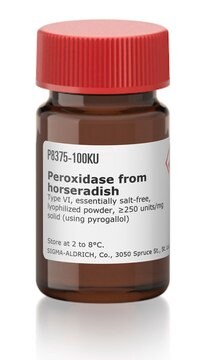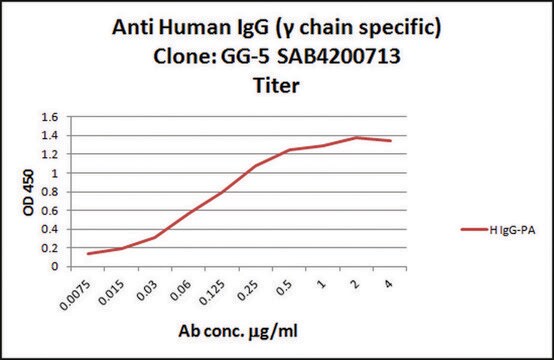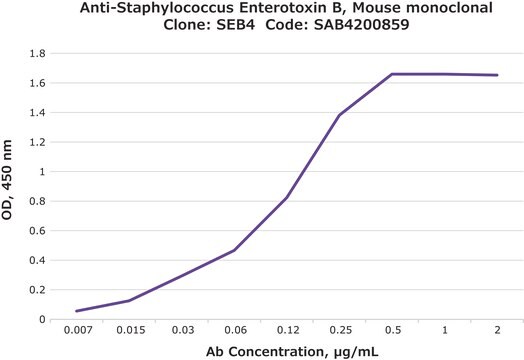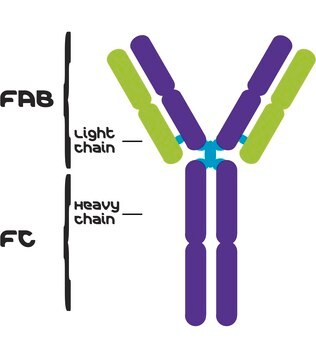SAB4200853
Anti-PBP2a of MRSA antibody, Mouse monoclonal
clone 38, purified from hybridoma cell culture
Sinonimo/i:
Anti-Beta-lactam-inducible penicillin-binding protein 2a
About This Item
Prodotti consigliati
Forma dell’anticorpo
purified from hybridoma cell culture
Livello qualitativo
Tipo di anticorpo
primary antibodies
Clone
38, monoclonal
Stato
liquid
Concentrazione
~1 mg/mL
tecniche
immunoblotting: 0.5-1 μg/mL using whole recombinant PBP2a protein
Isotipo
IgG1
Condizioni di spedizione
dry ice
Temperatura di conservazione
−20°C
modifica post-traduzionali bersaglio
unmodified
Descrizione generale
Specificità
Applicazioni
Azioni biochim/fisiol
Stato fisico
Stoccaggio e stabilità
Esclusione di responsabilità
Non trovi il prodotto giusto?
Prova il nostro Motore di ricerca dei prodotti.
Codice della classe di stoccaggio
12 - Non Combustible Liquids
Classe di pericolosità dell'acqua (WGK)
WGK 1
Punto d’infiammabilità (°F)
Not applicable
Punto d’infiammabilità (°C)
Not applicable
Scegli una delle versioni più recenti:
Certificati d'analisi (COA)
It looks like we've run into a problem, but you can still download Certificates of Analysis from our Documenti section.
Se ti serve aiuto, non esitare a contattarci Servizio Clienti
Possiedi già questo prodotto?
I documenti relativi ai prodotti acquistati recentemente sono disponibili nell’Archivio dei documenti.
Global Trade Item Number
| SKU | GTIN |
|---|---|
| SAB4200853-25UL | |
| SAB4200853-100UL |
Il team dei nostri ricercatori vanta grande esperienza in tutte le aree della ricerca quali Life Science, scienza dei materiali, sintesi chimica, cromatografia, discipline analitiche, ecc..
Contatta l'Assistenza Tecnica.








